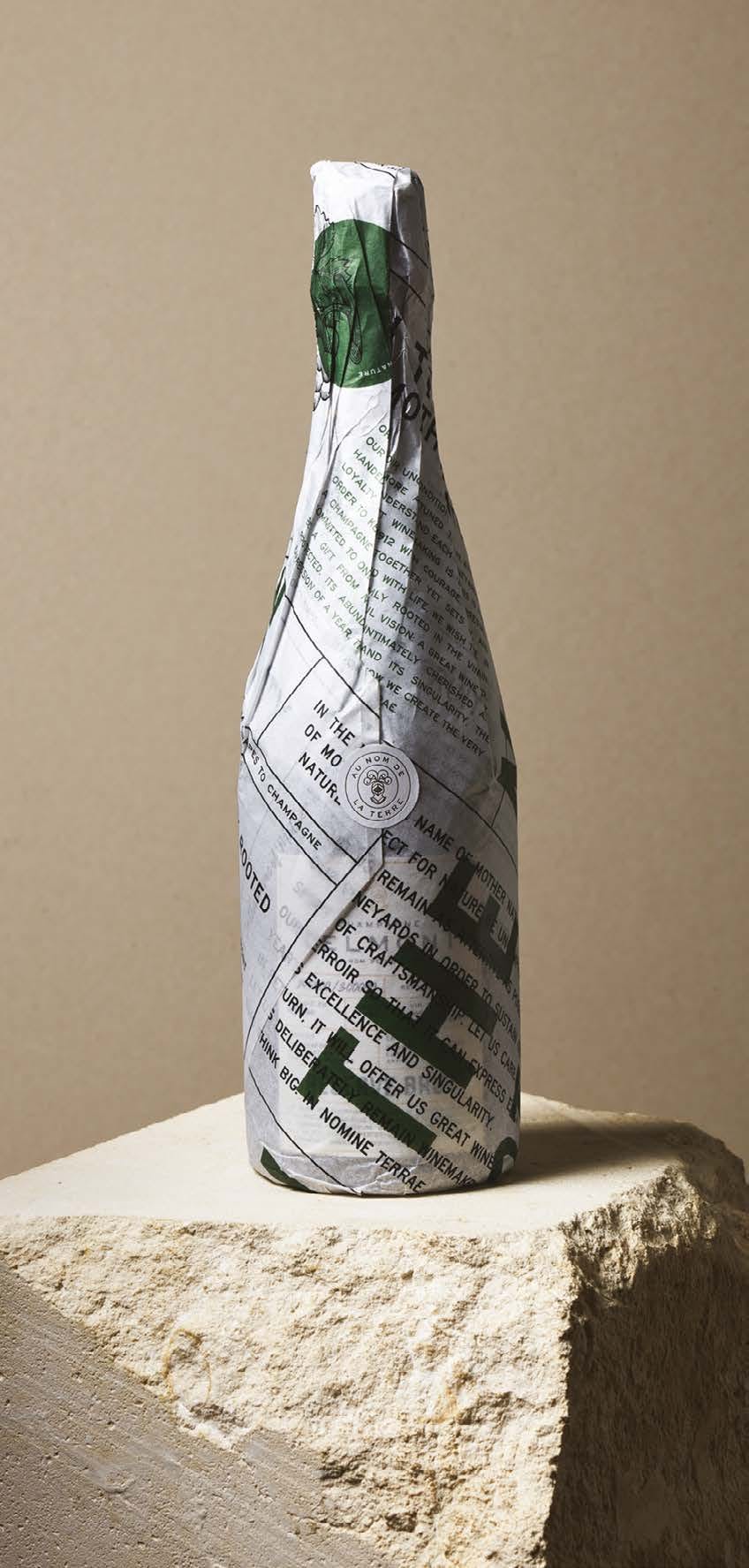
A bold and pioneering move: take away secondary packaging
The Group is continuing its efforts to eliminate all case packaging and gift boxes. 76% of its bottles are now sold without outer packaging, compared with 21% when the initiative was introduced two years ago.
The Rémy Martin brand was one of the first to embrace the idea. 58% of its bottles by volume are now sold unwrapped and the entire VSOP range in the United States comes without outer packaging.
Telmont in Champagne is also a disrupter: it has stopped all packaging except recyclable tissue paper for some of its vintages under the slogan: "the bottle and nothing but the bottle".
In Islay, Bruichladdich continued the "One Tin Lighter" campaign. In a bid to use less and better, the distillery asks customers to leave the tin behind when purchasing its products online or at the distillery.
The Group’s target is to have 85% of bottles without secondary packaging by 2025.
In tandem, it is radically overhauling existing case packaging to use only mono materials and recycled materials.
Lighter glass bottles and a higher proportion of recycled glass
Glass is infinitely recyclable, but it also emits a lot of CO2 when manufactured. Hence the importance of reducing bottle weight and increasing the percentage of recycled glass.
St-Rémy VSOP and XO bottles are now made from around two-thirds recycled glass and VSOP and Cointreau are 60% recycled glass. And the Group wants all its brands to follow this trend. This year, Champagne Telmont stopped using virgin extra-flint glass (transparent bottles) and is moving exclusively to green bottles made from 85% recycled glass.
Preparing for the future and helping to decarbonise the glass industry
In February 2022, Rémy Cointreau joined the Glass Futures consortium, the Global Centre of Excellence working to accelerate the sustainable transformation of the glass industry through innovation and collaboration. Glass Futures is testing different sources of renewable energy to manufacture glass and optimise heat recovery techniques. The pilot plant in St Helens in the UK uses renewable energy and artificial intelligence.
